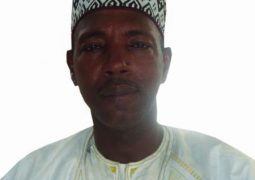This state of the economy has been conditioned by the shocks of the Ebola epidemic and climate change, leading to an estimated decline of 60 per cent in tourism arrivals for the 2014/2015-winter season and the delayed and erratic rain pattern in some parts of the country affecting agricultural output by an expected decline of 15 per cent compared to last year.
This is what compelled the Finance minister to declare that “2015 will not be easy”, as the nation will encounter some challenges.
Although he said the Gambian government would do everything possible to achieve the aspirations of the Gambian people by cushioning the effects of the shocks, fiscal management is however a ballgame that requires maximum discipline from any government.
Last year the government did bag a substantial amount of domestic debt, which contributes to hampering investment, economic growth and sound financial dispensation. So many other outlays were also undertaken by the government, which impacted on fiscal discipline.
Realising these facts, the government in its 2015 budget indicates that it is determined to fix the imbalances and restore macroeconomic stability through sound and fiscal monetary policies aimed at increasing efficiency in expenditures, revenue generation and service delivery, as well as adopt new policy measures.
But how far and well these will be respected and implemented is the decisive factor of turning things around for the better.
Government management of its spending and taxation decisions rests on a sound fiscal policy.
Fiscal policy has important, but much-debated, effects on the short-run behaviour of the economy. If governments choose to tax more than they spend (i.e. run up a surplus) then the impact of policy is broadly to depress the overall level of spending in the economy; the reverse occurs if government runs up a deficit.
In our situation, it seemed the reverse has been the case over the year, hence our long-run domestic debt burden, which does not augur well for the economy.
This is because more government borrowing may cause higher interest rates and, in turn, lower investment. Or, it may prompt the private sector to increase its level of saving in anticipation of the higher taxes that will be needed in future to repay the borrowing.
More government borrowing can push the exchange rate up, as foreign lenders send money into the currency, to lend to the government, thus depressing exports.
So we hope the year 2015 will be a fairly balanced one in terms of fiscal discipline, for the good of all – the economy, the private sector and the masses of our people.
“I believe that through knowledge and discipline, financial peace is possible for all of us.”
Dave Ramsey




